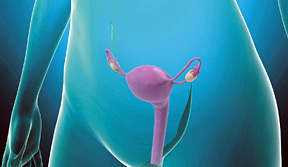She trains seven days a week while also staying busy (an understatement, to say the least) with her multiple jobs. Most of the expenses she incurs are paid out-of-pocket. She is paying all of her race registration fees and other incidental charges, like the $300 bike shipping charge (per event) to ensure that it is present at each and every triathlon.
"Usually after a race I pack up my bike and get on a plane, because I have to get to work on Monday," she said. "But it's fine. I am alive and able to do this, so it's great."
Sommermann said she feels she has developed "tenaciousness" after surviving cancer and is grateful the experience has given her a purpose and enough confidence to face the next 29 triathlons with vigor.
"Triathlon is a lifestyle, it's not just a sport, and I really model everything after it," said Sommermann. "Even chemotherapy was a triathlon. It's an endurance sport. Life is an endurance sport. I use it as a model for everything I do in my life. What I have learned is if you do all the leg work, you will have the inner strength that will carry you through. I feel like I have that. I feel very strong."
To follow Jen Sommermann's journey, visit her blog at www.jennsommermann.blogspot.com.
Ovarian Cancer – Facts and Symptoms
The Facts
 Ovarian cancer is a disease in which malignant (cancerous) cells grow in the tissues of the ovary. The ovary is a reproductive organ about the size of an almond, located in a woman's lower abdomen. Ovaries make the female reproductive hormones, estrogen and progesterone, and also make eggs, one of which is released monthly through the fallopian tubes into the uterus.
Ovarian cancer is a disease in which malignant (cancerous) cells grow in the tissues of the ovary. The ovary is a reproductive organ about the size of an almond, located in a woman's lower abdomen. Ovaries make the female reproductive hormones, estrogen and progesterone, and also make eggs, one of which is released monthly through the fallopian tubes into the uterus.
Ovarian cancer is staged depending on how far the cancer has spread. Ovarian cancer is also graded depending on how the tissue appears under the microscope. The higher the grade, the more likely it is that the cancer will spread.
The Symptoms
- A swollen or bloated abdomen; increased girth. Some women notice that their pants or skirts are getting tight around the waist. The bloating is a sign that fluid, called ascites, is building up in the abdominal cavity in the later stage of the disease
- Persistent pressure or pain in the abdomen or pelvis
- Difficulty eating or feeling full quickly
- Urinary concerns, such as urgency or increased frequency
- Change in bowel habits with new-onset constipation and/or diarrhea
- Unexplained vaginal bleeding
*Any woman may have these symptoms for reasons not related to ovarian cancer. However, if these symptoms are new and unusual, and persist daily for more than two weeks, a woman should see her doctor, preferably a gynecologist, and inquire about ovarian cancer.
Information provided by the Ovarian Cancer Research Fund.
Visit www.ocrf.org to learn more.

